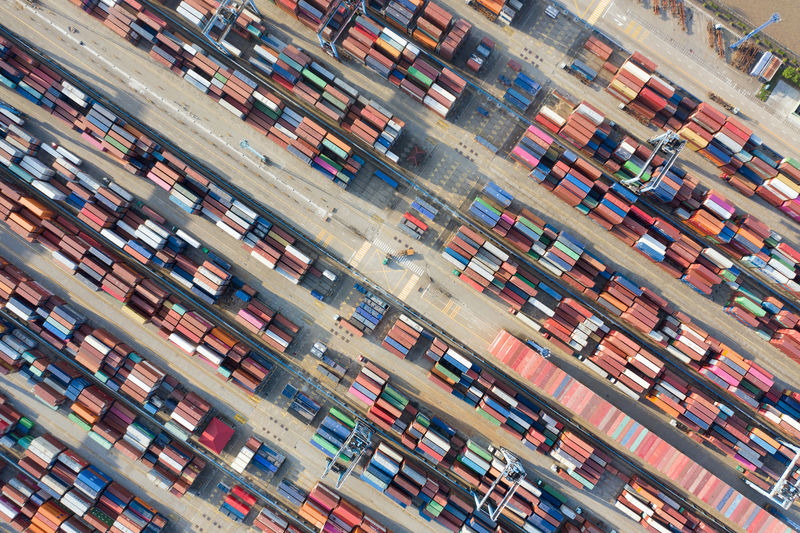BEIJING (Reuters) - China's exports and imports contracted less than expected in October, providing some relief for the export-reliant economy as Beijing tries to reach a partial trade deal with Washington.
But even if a first phase U.S.-China trade deal is signed soon, economists say it is unlikely to help boost exports and manufacturing for some time and could still mean more stimulus is needed from Beijing to avert a sharper downturn
China's exports in October fell 0.9% from a year earlier for the third straight month, customs data showed on Friday. Economists polled by Reuters had expected a 3.9% fall following September's 3.2% contraction.
Analysts say the existing tariffs, including the latest additional levies by the United States on Chinese imports from Sept. 1, have hit the country's outbound shipments, along with stubbornly weak global demand.
Friday's data also showed China's imports shrank 6.4% from a year earlier for the sixth consecutive month, compared with an expected drop of 8.9% and September's 8.5% decline.
The weak import figures are in line with recent readings on shrinking factory activity and bleak producer prices. The slowdown points to lingering weakness in domestic demand and the limited impact of policy stimulus so far.
That left China with a trade surplus of $42.81 billion in October, versus September's $39.65 billion surplus. Analysts had forecast a $40.83 billion surplus.
TARIFF ROLLBACK?
China's trade surplus with the United States was at $26.42 billion in October, up from $25.88 billion in September, according to Reuters calculation based on customs data.
Beijing and Washington have been locked in a trade feud for 16 months, but hopes have risen that an initial deal may be signed soon.
In a new sign of progress that lifted market sentiment, Beijing and Washington agreed to roll back tariffs on each other's goods as part of the first phase of a trade deal, officials from both sides said on Thursday.
The Chinese commerce ministry, without laying out a timetable, said the two countries had agreed to cancel the tariffs in phases.
In what could be another gesture to boost optimism, China's state news agency Xinhua reported late on Thursday that the Chinese customs and Ministry of Agriculture are considering removing restrictions on U.S. poultry imports.

But experts warn the pact could still fall apart. U.S. officials said a lot of work remained to be done when President Donald Trump announced the outlines of an interim deal last month.